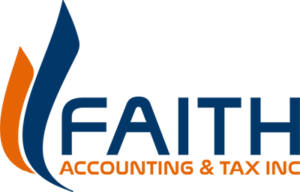GETTING ORGANIZED WITH TAXES
Maintain Accurate and Up-to-Date Records
Record-keeping is central to bookkeeping. Track the cash flow, comprising income, cost of goods, sales invoices, receipts, and bank statements. Organized records smooth down the tax-reporting work and help identify deductions.
Separate Personal and Business Finances
Have a separate bank account and credit card for your business, and do not take cash contamination to yourself. This segregation relieves the accounting department, eliminates confusion, and assures clean financial disclosure.
Implement a Reliable Bookkeeping System
Select a working tool of preference, whether a bookkeeping system or software. Additionally, it will come in handy to track revenue, expenses, and taxes. Abide by the principle of always ensuring the data you get will give you a real-time view of your company finances.
Track and Store Documentation
Use the systematic method of document-keeping, filing tax documents such as receipts, invoices, payroll records, and tax filings regularly. Create a logical categorization system with both physical and digital copies in secure form.
Establish a Schedule
Meet your tax deadlines and requirements to avoid penalties, additions, or late charges. Set notifications for key tax holidays like GST/HST remittance, payroll deductions, and the income tax filing due date.
CHOOSING A BUSINESS STRUCTURE
- Sole Proprietorship: This is the simplest form, with the owner personally liable for business debts and taxes reported on personal tax return services.
- Partnership: A partnership involves two or more individuals sharing ownership, profits, and liabilities, with taxes distributed among partners based on their share.
- Corporation: Separate legal entity from owners, offering limited liability protection and potential tax advantages like income splitting and lower corporate tax rates.
- Limited Liability Company (LLC): This type of company blends the features of corporations and partnerships, providing liability protection and flexibility in tax treatment.
DECIDING ABOUT INVESTMENTS
Assess an investment possibility by considering tax factors like capital gains taxes and investment income tax, as well as having a tax-deferred RRSP and TFSA. Plan to meet with your financial advisors or tax experts. Then, you can make the best investment decisions, considering all factors related to your business or personal finance.
CLAIMING DEDUCTIONS
Standard deductions for new businesses in Alberta may include:
- Startup Costs
- Office Expenses
- Advertising and Marketing Expenses
- Employee Wages
- Professional Services (Accounting, Legal)
- Travel and Entertainment
- Business Insurance
- Home Office Expenses (if applicable)
- Vehicle Expenses (related to business use)
- Interest and Financing Costs
STAYING UP TO DATE ABOUT CHANGES
Ensure you monitor and stay abreast of the Tax laws, regulations, and changes related to your Business in Alberta. Tax professionals or seminars, as well as tax webinars, may also be helpful. These help you stay abreast of the latest tax information and ensure tax compliance.
TAX PLANNING STRATEGIES TAILORED TO YOUR NEEDS
Tax planning strategies are a must for a business’s financial success. This is where Faith Accounting Inc. comes in. Give us a call today to schedule an appointment!






